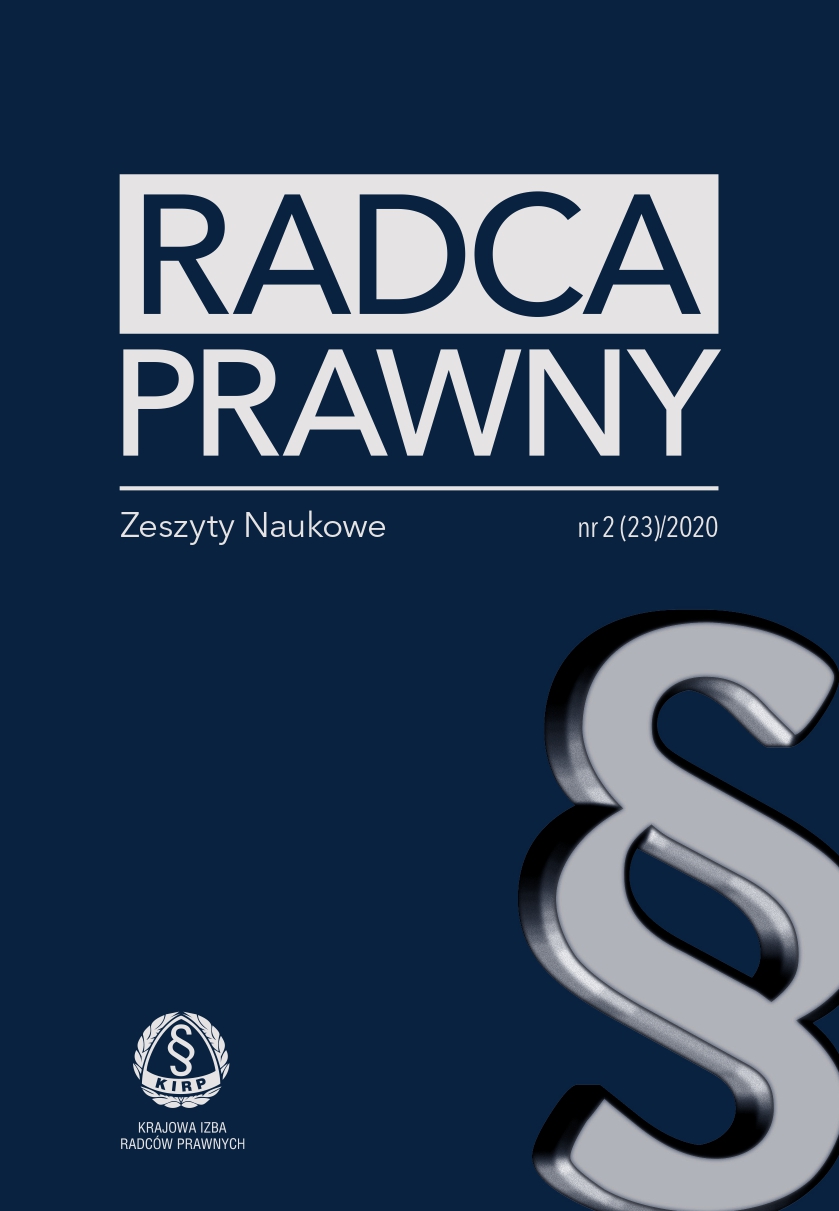Instytucja skargi subsydiarnej oraz oskarżenie posiłkowe w świetle ustawy nowelizującej Kodeks postępowania karnego z 19 lipca 2019 r.
The institution of a subsidiary complaint and subsidiary indictment in the light of the Act amending the Polish Code of Criminal Procedure of July 19, 2019
Author(s): Jarosław Zagrodnik, Patrycja TrzejaSubject(s): Law, Constitution, Jurisprudence
Published by: Krajowa Izba Radców Prawnych
Keywords: subsidiary complaint; subsidiary indictment; wronged party; July 2019 amendment; right to court
Summary/Abstract: The article focuses on the analysis of normative changes in the area of regulation of the institution of subsidiary complaint and subsidiary accusation, which were made by the amendment of July 2019. In particular, it discusses the restoration of the condition of obtaining by the wronged party the right to file a subsidiary indictment in the form of challenging a renewed decision not to prosecute and its maintenance by a prosecutor superior to the one who issued or approved that decision, indicating the legislative motives and consequences of the amendment. The analysis covered the change in the regulation of the wronged party’s legitimacy to file a subsidiary indictment related to the introduction of the requirement to use the rights provided for in Article 306 § 1 and § 1a twice, into the Article 330 § 2 sentence 3 of the Code of Criminal Procedure. In addition, attention was paid to granting a subsidiary prosecutor the right to issue a complaint against the decision refusing them the participation in the proceedings, issued pursuant to the Article 56 § 2 of the Polish Code of Criminal Procedure, presenting the issue while also taking into consideration the selected decisions of the Constitutional Tribunal. The subject of reflection was also the regulation of procedural consequences of the unjustified failure to appear of the subsidiary prosecutor and their representative at the main hearing in the case in which the public prosecutor does not participate. The issues of an intertemporal nature arising in practice, related to the determination of the legal status, according to which the legitimacy of the wronged party to file a subsidiary indictment should be assessed, are also considered. Over the course of deliberations, the authors present an assessment of the changes made in the July 2019 amendment and emphasize the practical aspects of the introduced modifications.
Journal: Radca Prawny. Zeszyty Naukowe
- Issue Year: 2020
- Issue No: 2
- Page Range: 145-168
- Page Count: 24
- Language: Polish

